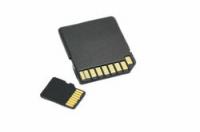Use fish against duckweed
Garden ponds quickly overgrow with so-called duckweed. Although some fish appreciate this as food, you should think carefully about their use, living beings have the right to be kept in a species-appropriate manner. They are not tools for cleaning a pond surface.
Interesting facts about duckweed
Get to know the "enemy" you want to fight a little better. From the distribution in nature you can see that duckweed can hardly be fought by fish alone.
- The botanical name of the plant is Lemna minor L. It is also known as the small duckweed and occurs naturally in almost every stagnant body of water in Europe, North America, Africa, and western Asia. Even in New Zealand and Australia, it spread quickly after being introduced by settlers.
- The only thing you will not find duckweed is in waters with strong surface movement. Ducks, swans, geese and fish like to eat the plants and in large quantities. Since the small duckweed reproduces extremely quickly, it does not happen in nature that a body of water is completely free of the plants.
- All animals that feed on duckweed secrete their excrement into the water. These are fertilizer for the duckweed, which are very undemanding. The more fish and water birds live from the plants, the better the plants are supplied with this natural fertilizer.
In the aquarium or in the garden pond, the problem is usually greater than in nature. When you feed your fish, you always automatically fertilize the duckweed as well. If the stocking with fish is to lead to a reduction in duckweed, you must therefore under no circumstances feed the fish.
After a short time, duckweed cover every garden pond that is in the sun ...
Concerns of the fish they use against the duckweed
All fish that are not pure predatory fish eat duckweed. In aquariums, guppies, mollys, swordtails and barbs are known for their appetite for duckweed. In the garden pond, all types of carp and of course goldfish are possible, including local rudd.
- In order for the fish to eat enough plants, you would have to add a large number of fish to the water and remove them immediately when significantly fewer duckweed can be seen. However, such an approach cannot be reconciled with animal welfare. Every move means stress. The fish do not feel well either if they have to live in a confined space.
- Also, keep in mind that after you remove the fish from the pond or have to accommodate the aquarium elsewhere. You must neither simply kill them nor expose them to nature. Suspending would only be an option for rudd.
In the long term, this measure can take effect, because even if only a few duckweed remain and the water is only poorly fertilized, the plants will multiply. Using fish against duckweed is therefore cumbersome and questionable from the point of view of animal welfare. You should go a different way.
Lemna minor L. fight effectively
Try a combination of skimming the plants, using competing plants and matching fish.
- Skim off the duckweed with a wide mesh net. Put the contents in a bucket of water. Use a small net to get the plants out of the bucket. Watch out for Snails and juvenile fish that may have hidden between the plants. Put this back into the water.
- Use the small tufted fern (Salvinia auriculata). It also grows on the surface and very quickly. These plants prevent the duckweed from spreading further. But they can be removed more easily if the growth becomes too strong. In the garden pond, the plants die in winter, they are not frost-resistant.
- Check the fish population. You need a few fish of the species mentioned. Make your choice based on the habitat you can provide the fish. Do not feed the fish while there are duckweed in the water. In general, you should only feed the fish every other day. Never add more to the water than will be consumed in a few minutes.
- Provide surface movement. In the aquarium, the air outlet of the filter should be placed just below the surface of the water. In the garden pond a fountain help.
With these methods you can effectively contain duckweed without affecting the fish's quality of life.

